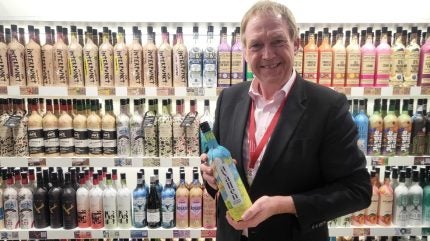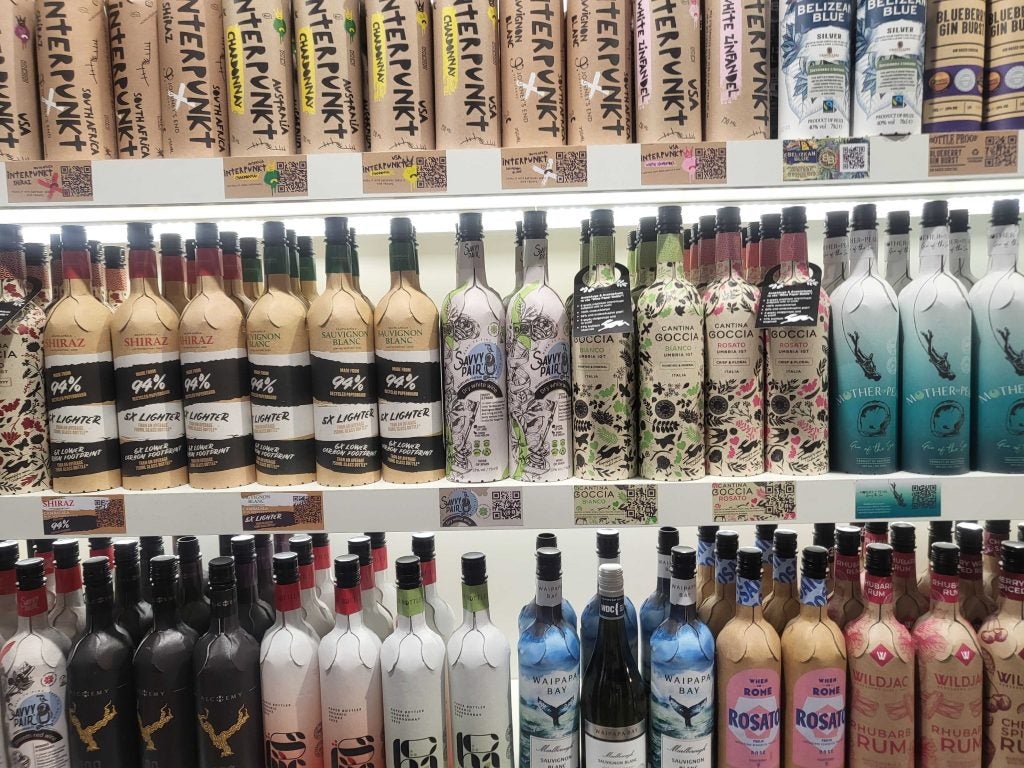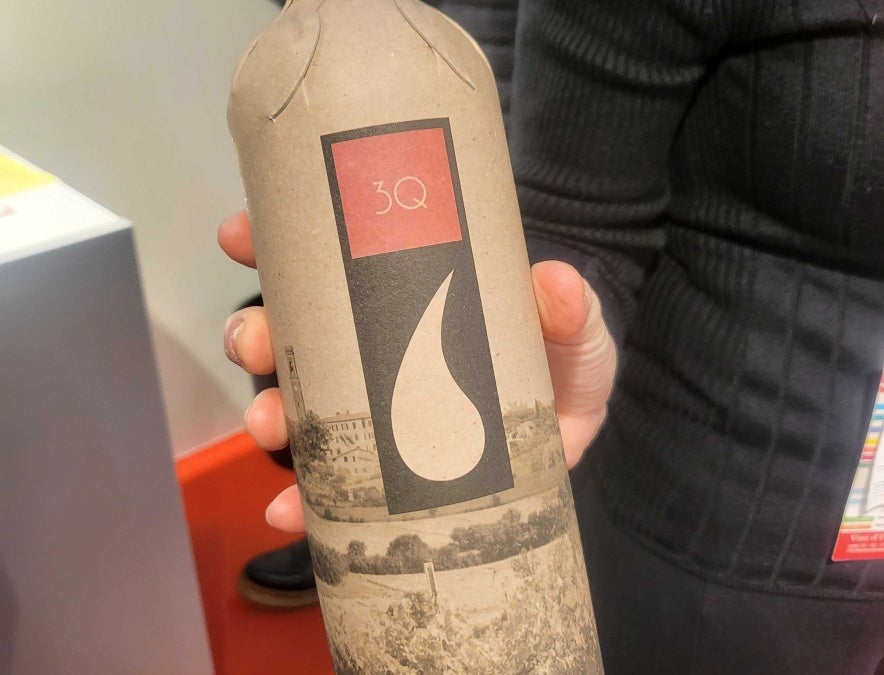
A quarter of wine and spirits bottles on supermarket shelves could be paper rather than glass within a decade, according to UK packaging company Frugalpac.
Frugalpac, which launched its Frugal Bottle in 2020, said surges in glass prices and consolidation in the glass industry could help boost alternative packaging.
Speaking to Just Drinks at the ProWein trade fair in Germany this week, CEO Malcolm Waugh said: “I don’t think there’s a reason not to think you couldn’t see 20-25% of the market in some form of paper alternative – ideally Frugal Bottle – in the next decade. That could be more than possible.
“The world’s a strange place at the moment. A few years ago, glass manufacturing was affected by what is going on in Ukraine. There was a shortage and shipping [problems].
“The glass industry has consolidated a lot, which is why our solutions are quite interesting to the industry because you’re not reliant on large supply chains if you’ve got a machine in your facility.
“We deal with straightforward paper and print – there are hundreds of print factories around the world. Then, from a pouch perspective, we’re seeing a lot more of those businesses, certainly regionally.
“The other thing with the glass industry is consolidation with ownership. You’re getting to a point where there’s less leverage that companies could put on the glass guys.
“That leads to people [moving to] alternatives, whether it’s Frugal Bottle, can or bag-in-box.”

Frugalpac’s bottles are made of a 94% recycled-paperboard outer and food-grade plastic inner pouch.
They come in at around £0.50 ($0.64) more than glass bottles, pushing the end price up by around £1.
Waugh said he sees a point in the near future where glass prices will outpace the Frugal Bottle, however.
He predicted carbon taxes and legislation would force glass companies to innovate, pushing up the cost of the end product.
“The glass industry doesn’t sit still so they are wanting to invest and bring out innovation.
“Lightweight is the first place to go but there is only so far you can go with glass. So the next thing then is furnace investment.
“But the key thing I think they’re finding is that [non-fossil-fuel-powered furnaces] are not as efficient in terms of the pace of which they can make the bottles. I think the cost of goods will start to increase. Plus, these investments are so big they’ve got to get a return on them and the only way they’re going to get that is to put the price up.”
Frugalpac is set to launch a faster machine in 2026, which Waugh said will bring manufacturing costs down “significantly”.
He said there would be an “inflection point” for Frugal Bottles in the next two to three years, whereby they will become cheaper than glass.
Frugalpac builds and tests its machines at its headquarters in Ipswich in eastern England.
It also sells its machines and the royalties for producing Frugal Bottles, with a long-term aim of moving away from manufacturing.
“We just believe wholeheartedly to get the machine as close to the filling as possible is the right thing to do,” Waugh said.
“Fundamentally, it’s about lower carbon. We get 5,000 unassembled bottles on a pallet versus 1,000 assembled bottles, whether that’s glass or paper. It’s also the lowest-cost way of making the bottle.”

Frugalpac has machines in the UK, Europe and Canada, which also services the US.
Production is due to begin in California in June and in Australia in February 2025. Waugh expects to install another machine in North America or Europe by the end of the year.
Around 2.5 million Frugal Bottles are produced annually, which Waugh anticipates will increase to 23 million by mid-2025.
Frugalpac also has 15 contract packers around the world and its products are available in 25 countries. Brands using the bottle include William Grant gin brand Silent Pool and wine brand Interpunkt, which is bottled by Broadland Drinks in the UK.
The bottles are available in UK branches of Tesco and a two-SKU trial will start in Aldi next week (18 March). Frugalpac is also due to launch in Whole Foods Market in the US in May and is in the tender process for the monopolies in Scandinavia.
Frugalpac encourages suppliers to source materials locally to reduce their carbon footprint. This can also give a “competitive advantage” if manufacturers already have relationships with suppliers, Waugh said.
“If we’re not adding value, we’re not going to do it. To sell printed paperboard to America just to make [customers] buy it is silly. We work with them to set the supply chain up,” he said.
“We sort of give up quite a lot, which makes it quite disruptive as a business because other companies try to hold on to as much as they can.”
Frugalpac is backed by private investors and Waugh hopes to become profitable next year. The company has raised £19.5m to date, with 14m of that raised since 2017.
Long read: Will glass wine bottles ever be replaced?


